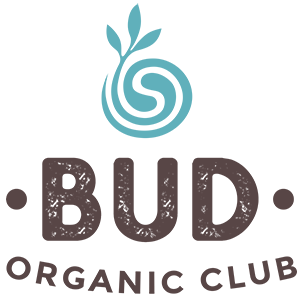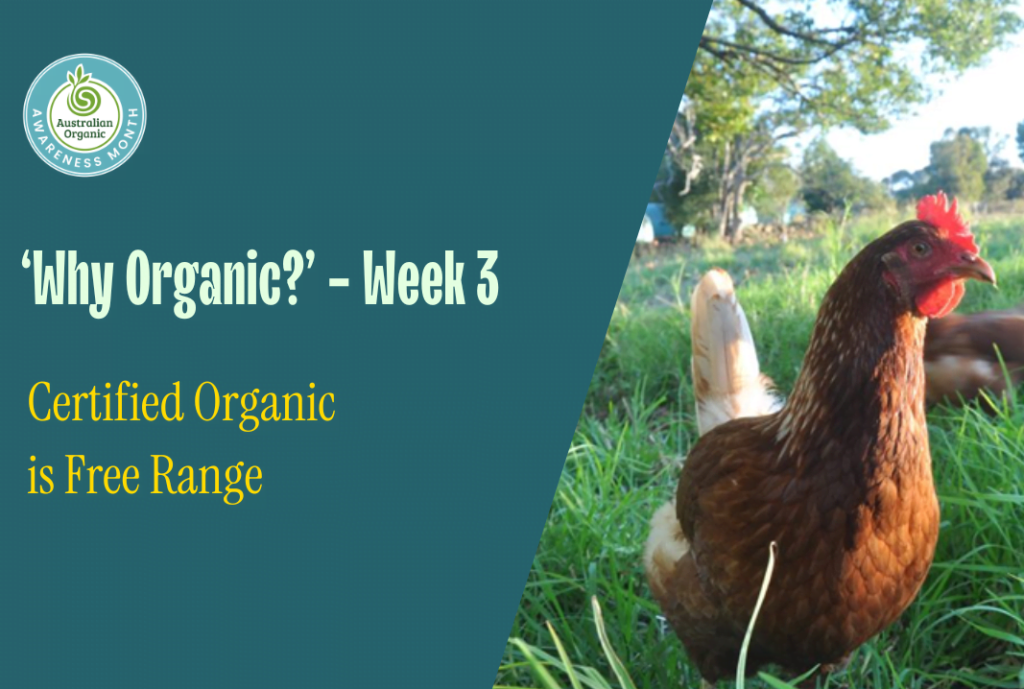One of the many benefits of organic systems is the importance placed on animal welfare. In Australia, all certified organic livestock (cows, sheep, chickens etc.) must be permitted to range freely. The specifics of this vary depending on the animal in question, but in simple terms, free range means that animals must be permitted to access outdoor areas during the day.
Certified organic programs (including the Australian Certified Organic Standard) offer some of the highest standards of animal welfare in the world. Free range requirements must be strictly adhered to, with animals afforded a high quality of life where they can act naturally and interact socially with their species. Organic animals are given sufficient access to pasture and shelter, as well as being permitted to live and grow in appropriate group sizes.
For more on the specifics of organic free range standards for each animal type, check out our blog here. We have listed the primary considerations for each sector below.
Free range eggs
Certified organic eggs come from chickens who are free to roam outdoors on certified organic pastureland for a minimum of 8 hours per day. The pastureland must be free from synthetic chemicals and GM crops, meaning that the eggs that you buy are free from them too.
Free range beef, lamb and pork
Most of Australia’s lamb and beef comes from sheep and cattle that have spent their lives outdoors. If the animals are both born and raised in extensive outdoor environments, they can be classed as free range. Certified organic beef cattle and sheep must have free access to pasture, with adequate protection from predators. Living conditions must consider the natural needs of each animal, including free movement, social behaviour, access to food, water and shelter.
Certified organic pork comes from pigs that have access to soil and pasture, with the ability to conduct natural social and physical behaviour – with range management to ensure they do not contribute to soil erosion. The use of sow stalls and farrowing crates are also prohibited for certified organic pigs.
Free range poultry
Much like free range eggs, free range turkey and chicken meat comes from birds that have access to outdoor areas during the daytime. At night, chickens may be kept in sheds or barns to shelter them from predators, whereas turkeys may continue to access the outdoors with optional shelter.
For set stocking, no more than 1500 birds are permitted per hectare for certified organic chickens, whereas non-organic free range can be up to 10,000 per hectare.
Below you can see the maximum allowed stocking densities of chickens (layers and meat) per hectare dependent on type of certification and system. More information is available here.
| Certified Organic: Set Stocking | Certified Organic: Rotational Stocking | Free Range | Caged | |
| Maximum number of egg laying birds per hectare | 1,500 | 2,500 | 10,000 | 180,000 |
| Maximum number of meat birds per hectare | 2,500 | 2,800 | 140,000 | – |
One example of a leading certified organic business committed to free range practices is Inglewood Organic Chicken. At Inglewood, chickens are not treated with medications, antibiotics, hormones nor GMOs that may be found in other products, with only natural remedies used. Birds flourish in their free range environment and eat certified organic feed that is grown without synthetic nitrogenous fertilisers, chemical herbicides and toxic, synthetic pesticides.
Their organic chickens are grown at nature’s pace, taking almost twice as long as non-organic chickens to grow to maturity. By not using ‘quick-fix’ solutions that harm the animals and the environment, the end result is a much healthier (and tastier) product!
When shopping for organic meat and eggs this September, keep an eye out for an organic certification mark (like the ‘Bud’ logo) to ensure you are supporting food systems where animals are free to range.


